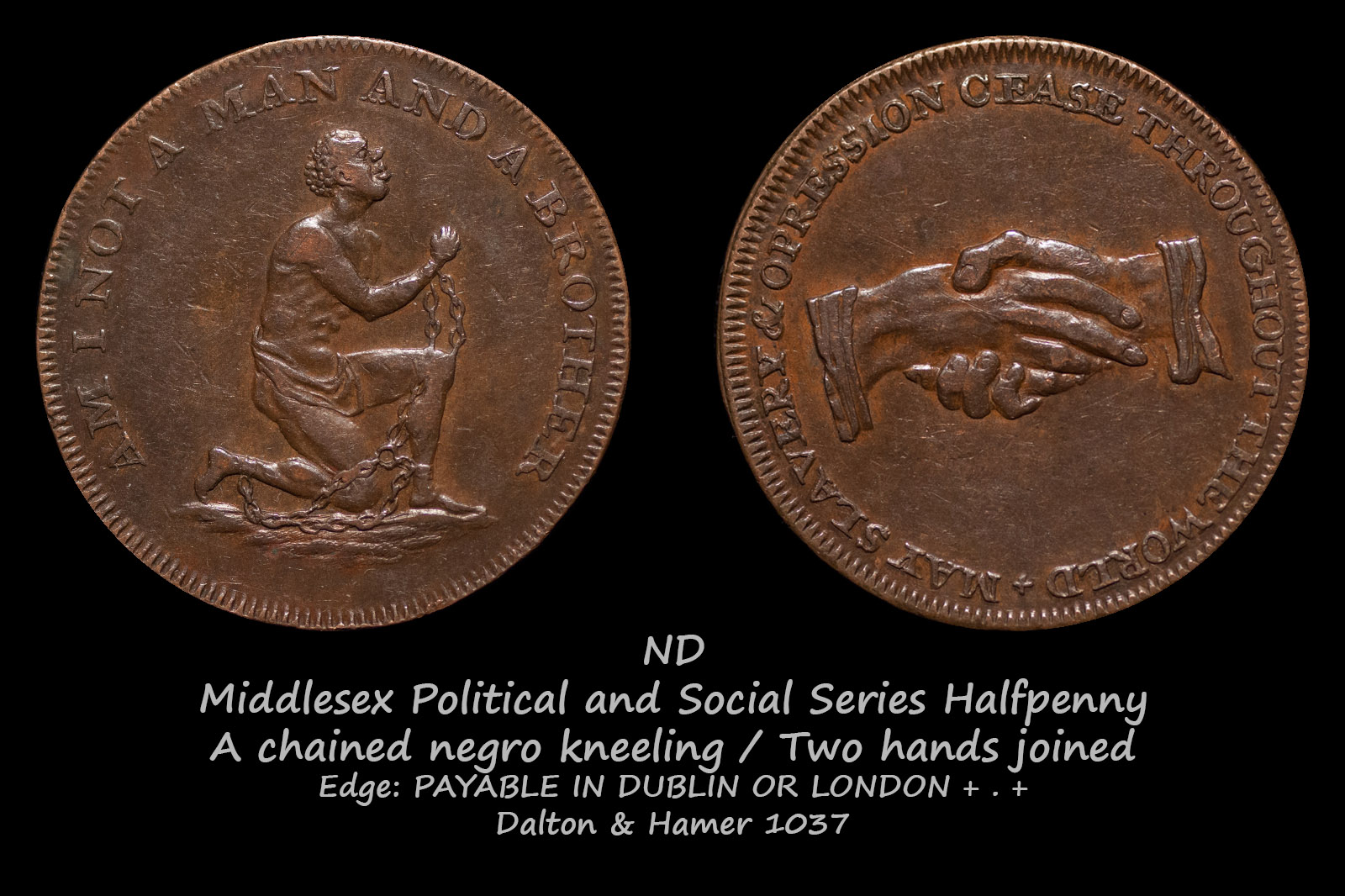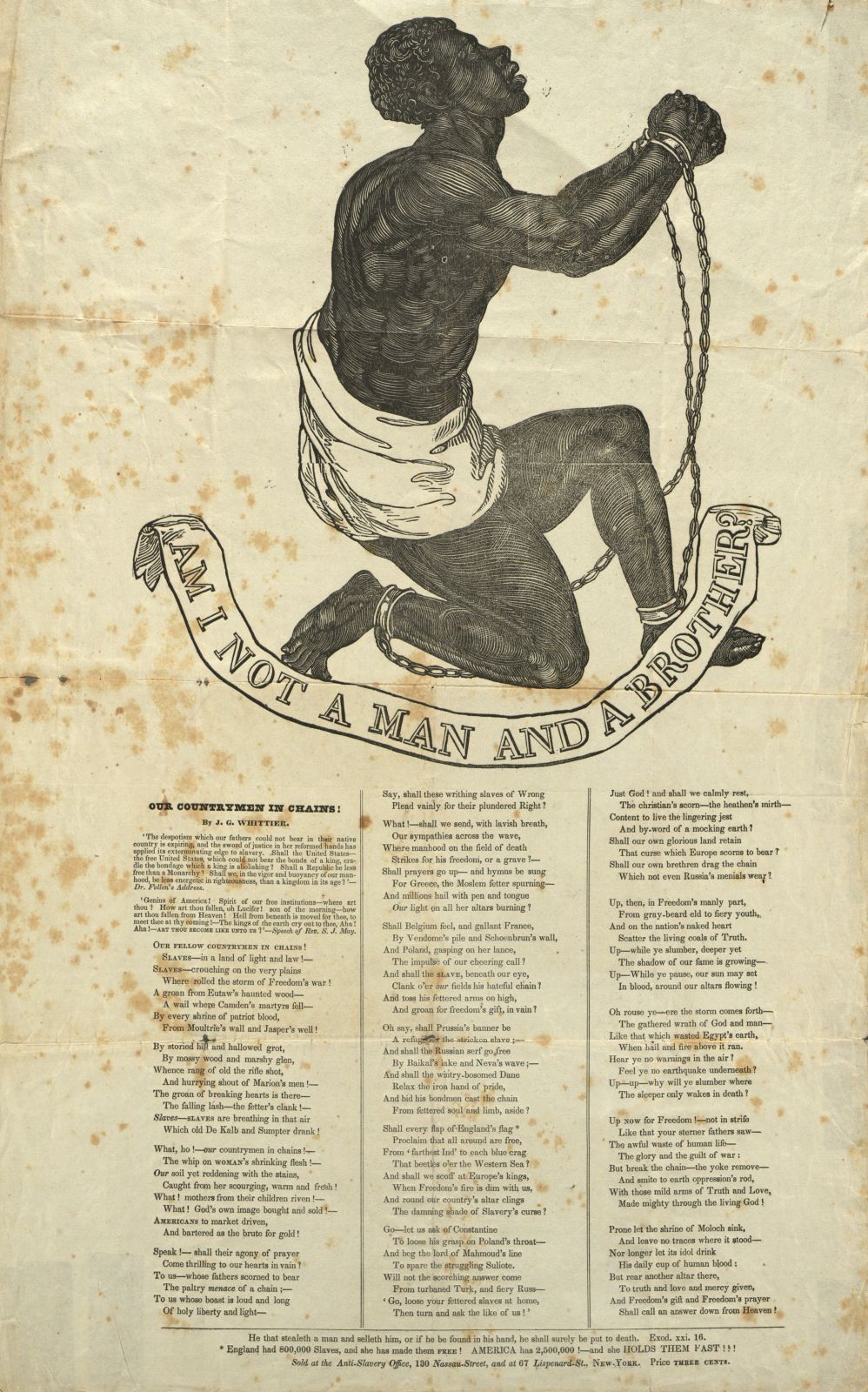
Online collections
monedastodas.com
All collections » Tokens » Man and Brother Halfpenny
Political and Social Series
On the front side, a Negro is depicted kneeling in prayer with his hands chained in chains. Легенда: "AM I NOT A MAN AND A BROTHER"

The reverse side features a handshake and a circular legend: "MAY SLAVERY & OPRESSION CEASE THROUGHOUT THE WORLD" (Is it possible to end slavery and oppression around the world).
The image of a Negro on the front side is taken from the seal of the first society against the slave trade. The first idea to fight the slave trade came from among the Quakers. In 1774, the British Society of Friends decided to exclude any Quaker involved in the slave trade, and the Quakers of Pennsylvania formed the first Anti-Slave Trade Society and by 1776 freed all of their slaves. In 1783, the English Quakers formed the "Association for the Relief and Emancipation of the Slaves of the West Indies and for the Prevention of the Slave Trade on the Coast of Africa".

The main supporter of the abolition of slavery in Parliament was William Wilberforce (William Wilberforce 1759-1833). William was born into a wealthy merchant family, one of the oldest families in Yorkshire. He was educated at Hull Grammar School and St John's College, Cambridge. Among his university friends were several very influential figures in the future, among whom was the future Prime Minister William Pitt Jr. Shortly after graduating from university in 1870, William was elected Member of Parliament for Kingston upon Hull, and in 1784 represented the whole of Yorkshire. In the early 1780s he supported parliamentary reform and Roman Catholic emancipation, but the events of the French Revolution forced him to become more conservative.
In 1785, Wilberforce first approached evangelical Christians with the problem of the slave trade, and in 1787 he participated in the creation of the "Committee for the Abolition of the Slave Trade in the West Indies" in London. With the support of William Pitt, Wilberforce used every opportunity to discuss the horrors of the slave trade in the House of Commons. As a result, in 1806, Parliament passed a bill, which became law a year later, forbidding British merchants from selling slaves to foreign colonies, and also forbidding the importation of slaves into the possessions of Britain. In 1811, the slave trade was criminalized, but despite this, slavery in Britain and the colonies lasted until 1833.
Throughout his years in Parliament, William Wilberforce actively supported the campaign for the complete abolition of slavery, as a result of which, in 1833, a law was passed according to which slavery in Britain and the colonies was officially abolished, all slaves should be freed, and slave owners should be paid monetary compensation from the Treasury.
Lead lettering: PAYABLE IN DUBLIN OR
LONDON +.+
Dalton & Hamer 1037